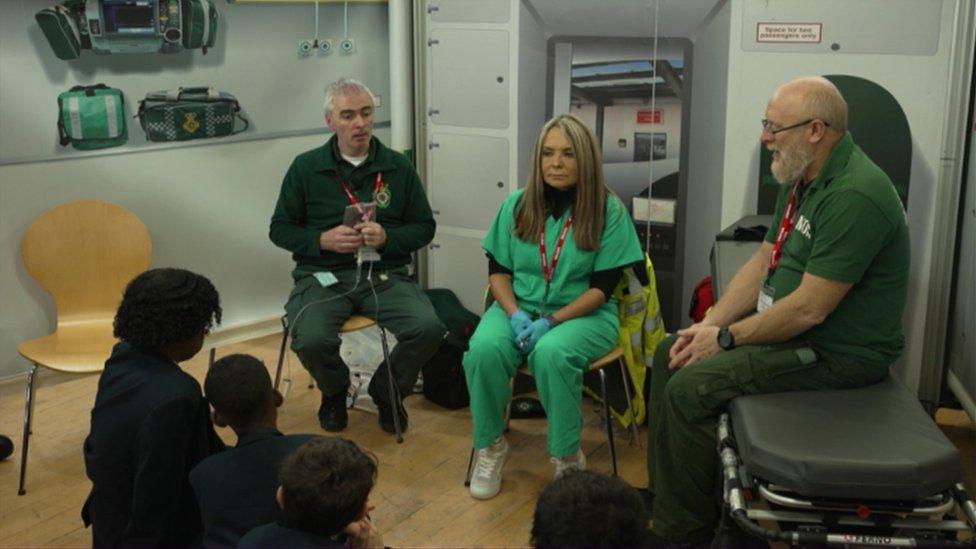Teacher wishes he had conversation with knifeman
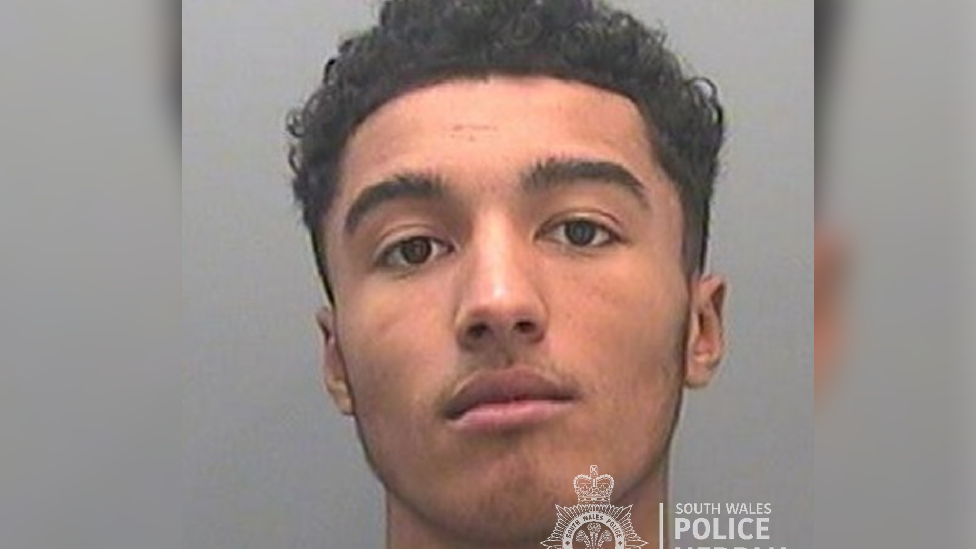
Brandon Liversidge was sentenced to at least 20 years in custody for killing 17-year-old Harry Baker in August 2019
- Published
For Neil Cole, helping to stop knife crime is personal.
It was in August 2019 that one of his former pupils took part in the brutal murder of Harry Baker, 17, at Barry Docks in Vale of Glamorgan.
"I never thought he’d end up like that," said Mr Cole, who is one of those taking part in a campaign - Not the One - that aims to tackle the issue of knife crime in south Wales.
"I wish I could’ve had the conversation with him that I’m having with these kids today," Mr Cole said.
Teen's drug dealing murder 'too hard to bear'
- Published29 March 2021
Brother's call for action as knife crimes double
- Published25 September 2021
Crime here is hurting, whatever the statistics say
- Published12 June 2024
He had previously been a primary school teacher of Brandon Liversidge, who was 17 when he was one of four people found guilty of murdering teenager Mr Baker.
Liversidge was a rival drug dealer who led the chase of Harry Baker and was just 16 when he stabbed him to death.
Mr Cole described the path Liversidge had gone down as "tragic", saying he had been a "lovely kid" while in school.
Not the One aims to use trusted adults - such as parents, carers, sports coaches or teachers - to provoke discussions on the issue of knife crime inside and outside the classroom.
The issue is a growing concern across the UK - particularly among young people - and the campaign, led by South Wales Police and the Wales Violence Prevention Unit, is educating 11 to 16-year-olds in south Wales about the dangers of carrying knives.
The name comes from the fact that about one out of 100 young people carry a knife, urging people not to "be the one".
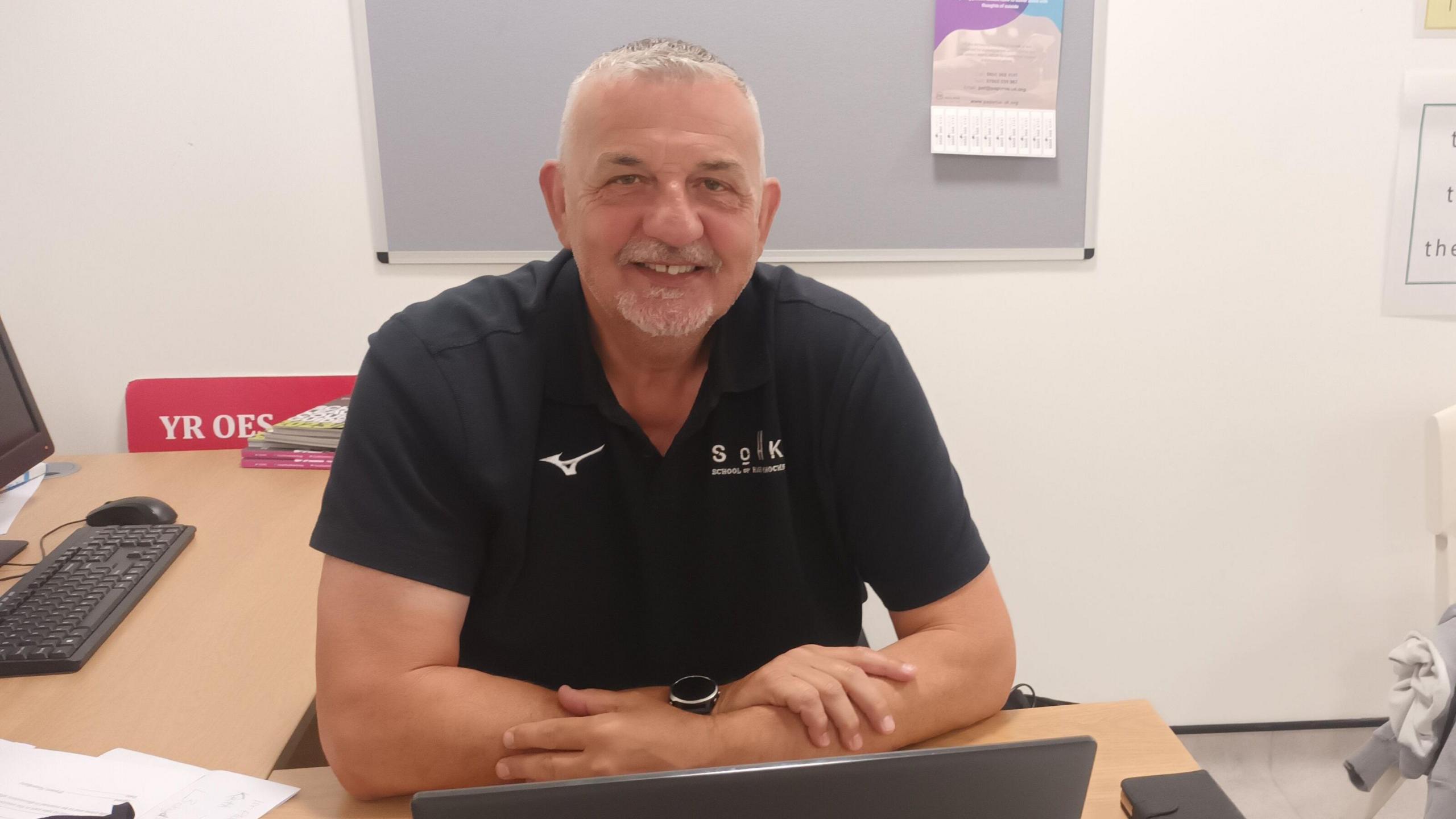
Neil Cole says discussions around knife crime can open up "really powerful conversations" with students
Mr Cole said the students were heavily engaged in the knife crime component, which includes an interview with Harry Baker's mum, who said her son's murder had "destroyed" her.
Mr Cole described that interview as "really powerful", adding one of the reasons was because the killing occurred "just a few miles down the road".
Mr Cole, who now works for the charity School of Hard Knocks, said he uses the campaign in intervention classes his charity conducts in schools in south Wales.
He said much of what it focuses on is early intervention, particularly with those who have "become disengaged with school" - adding many have experienced trauma.
Mr Cole added a stabbing at a school in Ammanford, Carmarthenshire, in April often came up in discussion, opening up "really powerful conversations" with students.
"What we try to communicate to them is that at some point in their future they’re going to be left with a choice of going one of two ways. They can take one path, towards gangs and crime, or take another path.
"We want them to take the other path, and to really think about the decisions they’re making," he said.

Harry Baker was killed in Barry Docks in August 2019
Also taking part in the campaign is Claire Millar, who has worked as a youth worker in south Wales for 25 years.
She said she had never encountered a young person who carries a knife because they intend to use it, but because they want to "protect themselves".
"But if you get that knife out, anything can happen," she said.
"If you hit someone in the neck, their life is gone, their family’s life is destroyed, and your life is destroyed because you’re going to prison," she said.
Ms Millar said the campaign aims to encourage young people to make "the right informed choices to change their own lives for the better".
Many of those who carry knives have been recruited into so-called county lines gangs, she said, and have been targeted because of their vulnerability.
"Young people who are getting involved in knife crime are not bad people. They’re hurting, they’re lost, they often don’t have a sense of belonging in society," she said.
"So we're trying to change that."
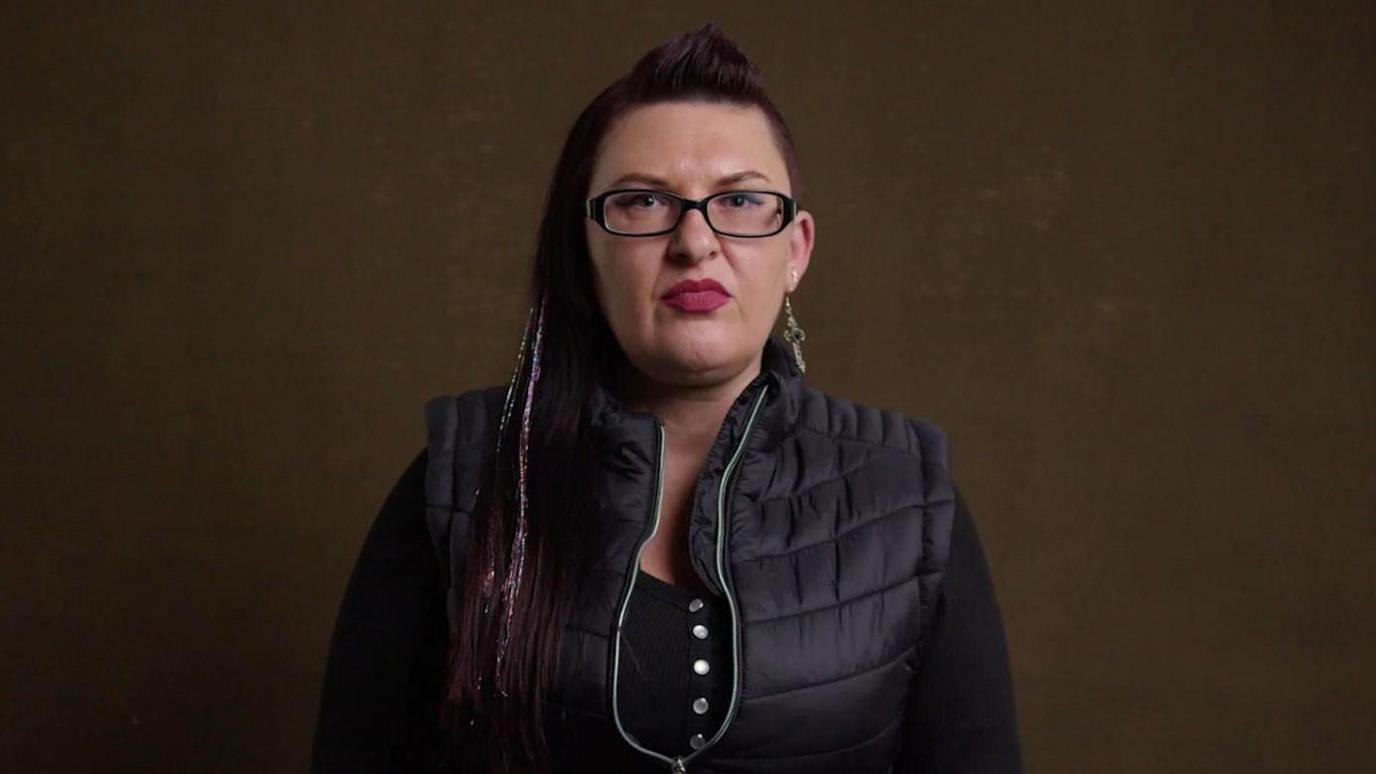
Claire Millar says it is important for society to understand why young people get involved in knife crime
Statistics show knife crime in Wales rose slightly in 2023 compared with a year earlier, with 1,626 serious offences involving a knife or sharp instrument, accounting for 4% of all serious offences.
Although an increase since before 2019, the rate in Wales is well below the national average – there were 52 offences per 100,000, compared with 89 per 100,000 across England and Wales.
Supt Esyr Jones, from South Wales Police, said the Not the One campaign had contributed to knife crime among young people in the region "plummeting", pointing to a drop in the number of young people being admitted to hospital for assault or knife-related injuries.
He said the idea for the campaign came after the force saw a number of issues with knife crime in 2019 and 2020, describing them as a "watershed moment".
The aim is both to debunk the "myth" everyone is carrying a knife - with one of the main reasons people give for carrying is thinking that others are - and work with trusted adults who can make an impact in young people’s lives.
Supt Jones said police officers would conduct speeches in schools on the issue of knife crime, but "the feedback was that the engagement didn’t really make a difference".
"But people listened to teachers, youth leaders, school nurses, dinner ladies – these are the people who hold the power in these people’s lives. They’re not there for one session, they’re there all the time," he said.
He admitted it was a "novel approach" to policing, but came as a result of "a lot of soul searching to understand what works".
The initiative therefore provides material for these adults to intervene if they suspect a young person could be moving towards criminality and gangs.
"We’re empowering those adults who hold the power and relevance over young people to use that to save a life," he said.
Related topics
- Published29 September 2023
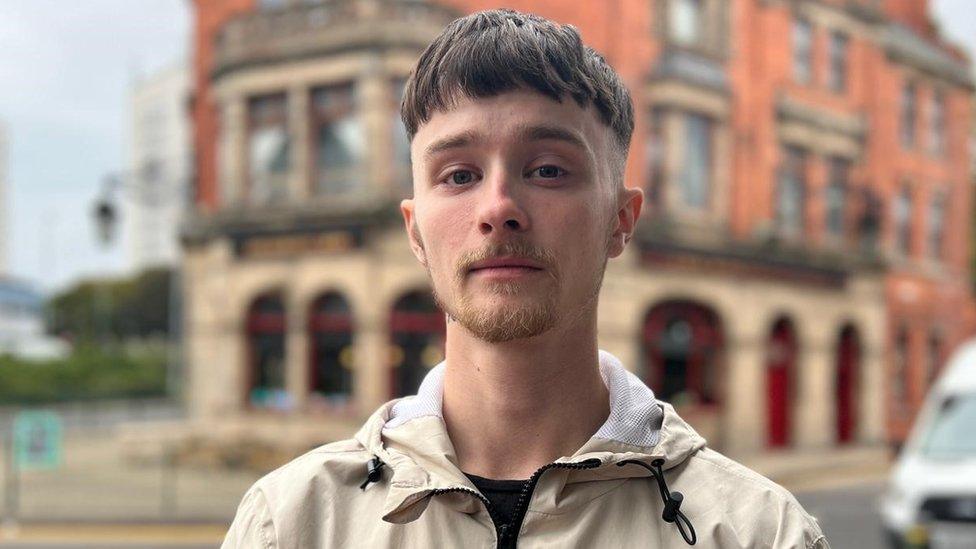
- Published20 November 2023
